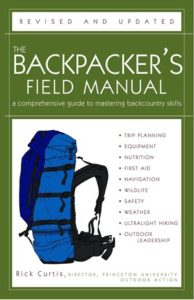Thirty years ago, when I first started working as an EMT, there was little attention given to managing the stress of the profession. We coped with stoical silence in a culture where there was no acceptable way to deal with the emotional impact, sadness and tragedy we experienced. We rarely talked about our experience and there were very few wise veterans who could guide us through tough times.
At this time we began to hear of Post-Traumatic Stress Disorder (PTSD), an anxiety disorder secondary to a traumatic event. We learned that symptoms of stress such as hyper arousal (difficulty sleeping, irritability, trouble concentrating, hyper vigilance, exaggerated startle response), detachment, excessive alcohol or drug use, intrusive thoughts and dreams could persist beyond the natural expected adjustment period. If not resolved, these could become PTSD.
The emergency community recognized a need and began to develop ways to help each other cope. In the 1980’s I became involved in the early phases of what has become the current practice of CISD. I attended sanctioned training, got a certificate, and became part of a team available for debriefing critical incidents.
At first the process was focused for emergency medical services, fire or law enforcement. Later, as outdoor programs became more aware of the stress in our profession CISD spread into wilderness education and was used for difficult evacuations and serious incidents.
Our CISD process was a model developed by paramedic Jeffery Mitchell. In these debriefing sessions emergency personnel reconstruct and verbalize their participation in a critical incident and openly discuss their feelings and reactions with peers and mental health personnel.
|
The steps for a CISD (Mitchell Model)
|
Initially we helped emergency personnel through awful events that met thresholds for a critical incident: death or serious injury to children, line of duty death, multi-casualty incidents, community disasters, prolonged and/or night operations and threat of personal injury or death
We knew we didn’t have evidence supporting the effectiveness of the CISD. To the skeptic we explained our assumption that a critical incident stress debriefing (CISD) would prove helpful, not harmful, and prevent the emergence of PTSD.
After actively participating in a number of debriefings, both in emergency services and wilderness education, I became concerned that perhaps we were harming more than helping. I saw the process impose stress on some people, even though we did not demand that everyone speak. I saw pressure to attend and participate from administrators, some motivated by true concern for the emotional health of their people, some concerned more with potential liability from stress. I saw the process used for nasty, but non-critical incidents, experiences which are really “part of the territory” of emergency services.
Well, it’s been almost twenty years since my first CISD trainings, and studies are now appearing that look at the effectiveness of the process. In the past few years there have been a number of papers in medical journals and the lay press questioning CISD, including a review in the November 2003 Psychological Science in the Public Interest that says, “For scientific and ethical reasons, professionals should cease compulsory debriefing of trauma-exposed people.”A consistent theme of these papers is that there is little evidence CISD helps, and some evidence it may actually increase stress in some people.
The critics argue that revisiting the incident can increase the trauma. They say that CISD is used instead of normal and personal support systems (family, clergy, friends, peers), and that some people cope best alone. Time may be a key component of healing these wounds, and no program may be capable of hastening the process. The North Atlantic Treaty Organization (NATO), World Health Organization (WHO), Australian Critical Incident Stress Association (ACISA), and National Institute of Mental Health (NIMH) are among the organizations questioning or no longer recommending CISD.
Mitchell responds that the critical studies compare apples to oranges. They inappropriately relate CISD to psychotherapy and include debriefing processes that incorrectly focus on CISD while ignoring the full scope of critical incident stress management (CISM). Single session debriefings, sessions with non-cohesive groups, sessions for individuals and sessions with people poorly trained or straying from the model are not CISM/CISD. There is an extensive review of the negative literature with Mitchell’s comments available at www.icisf.org.
I have enough concerns about this process that I no longer participate in a formal CISD team. Yet, I deeply understand the need for us to come to terms with the stress from keeping students safe and healthy on our programs during routine situations, let alone an emergency. Regardless of how you feel about CISD, we need to help people both through individual incidents, and the effects of cumulative stress.
Fellow CISD debriefer and NOLS Professional Training Director John Kanengieter says it well. “Debriefing gives people a map to work through the emotional and cognitive wilderness after a serious incident.” We should provide emotional support to the staff and participants, many of whom are young and may be experiencing their first real life stress. The National Association of EMS Physicians, in a draft position paper on CISM recommends “psychological first aid.” This entails listening, empathy, assessing needs, ensuring that basic physical needs are met, protecting from additional harm, not forcing people to talk and accessing family or significant others. Rescuers should understand that their reactions, while uncomfortable, are natural, normal reactions to abnormal events, and that healing may take time and assistance. NOLS has a plan for professional mental health support for those in need.
Thirty years ago we endured the strains of our profession because we didn’t know any better. Today we’re more aware, and we have more resources to help. We can use a simple, voluntary debriefing, or a conversation around the campfire with a trusted mentor or friend to help each other manage the emotions of an event, to connect people with their support groups, and to identify a person who needs additional help. And we can do this without imposing a process that may not be needed, and may be harmful.
All rights reserved. Outdoor Ed LLC is granted full permission to display the article and all associated material. This material may not be reproduced or extracted in any fashion electronic or otherwise without the express permission of the original author.


